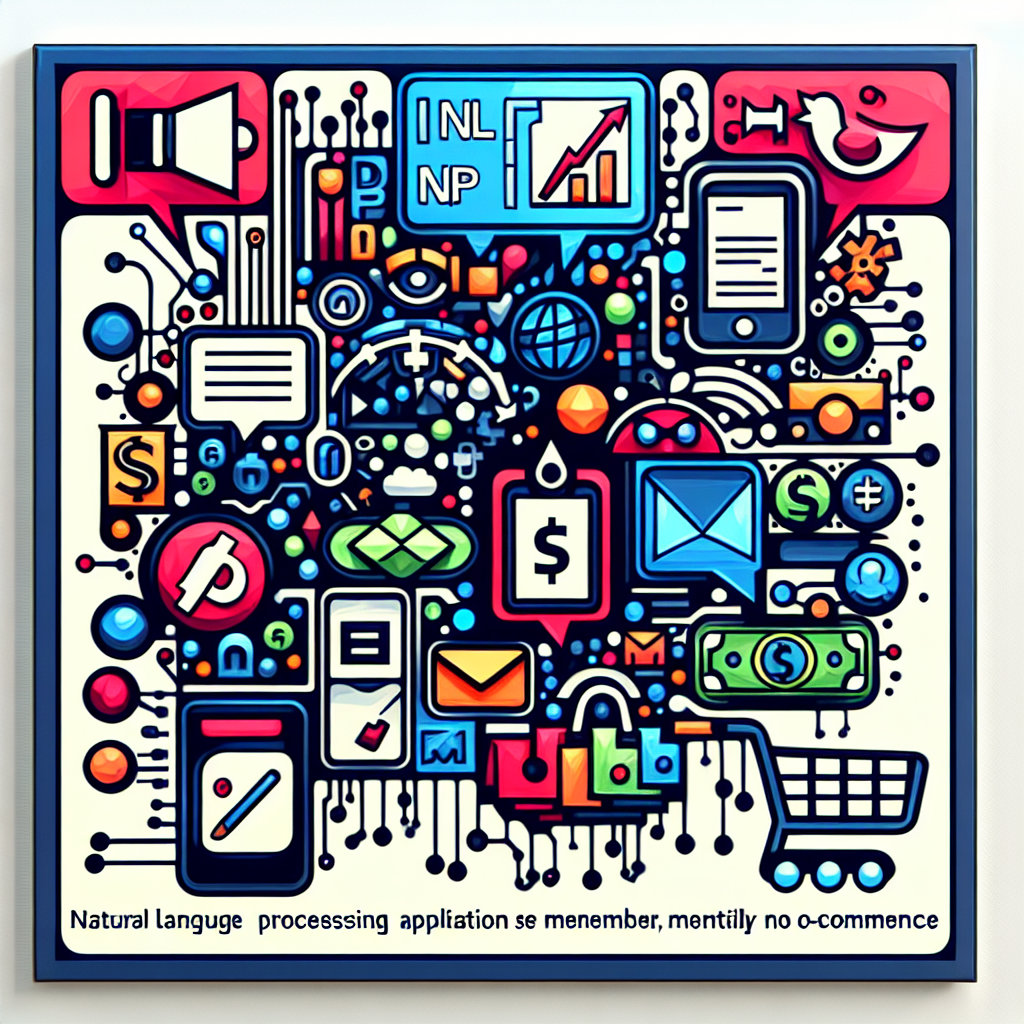Natural Language Processing (NLP) is a branch of artificial intelligence that focuses on the interaction between computers and humans using natural language. With the growing popularity of e-commerce platforms, NLP has become increasingly important in improving customer experience, enhancing search functionality, and personalizing recommendations for users. In this article, we will explore the various applications of NLP in e-commerce and how it is revolutionizing the way we shop online.
1. Product Search and Recommendations:
One of the key applications of NLP in e-commerce is in improving product search and recommendations. By analyzing the text provided by users in search queries, e-commerce platforms can better understand the intent behind the search and provide more accurate results. NLP algorithms can also analyze user behavior and preferences to provide personalized recommendations based on past interactions and shopping history.
For example, when a user searches for “black leather jacket,” NLP algorithms can understand the specific attributes of the product being sought and provide relevant results that match the user’s preferences. Similarly, by analyzing user interactions with products and reviews, e-commerce platforms can generate recommendations for similar products that the user may be interested in.
2. Sentiment Analysis:
Another important application of NLP in e-commerce is sentiment analysis. By analyzing customer reviews, feedback, and social media posts, e-commerce platforms can gain valuable insights into customer sentiment towards products, brands, and services. This information can be used to improve product offerings, customer service, and marketing strategies.
For example, by analyzing customer reviews of a particular product, e-commerce platforms can identify common complaints or issues that need to be addressed. Sentiment analysis can also help identify trends and patterns in customer feedback, allowing e-commerce platforms to proactively respond to customer concerns and improve overall customer satisfaction.
3. Chatbots and Virtual Assistants:
Chatbots and virtual assistants are becoming increasingly popular in e-commerce for providing personalized customer support and assistance. NLP algorithms power these chatbots, allowing them to understand natural language queries and provide accurate responses to user inquiries.
Chatbots can assist customers with product recommendations, order tracking, and general inquiries, providing a seamless and efficient shopping experience. By analyzing customer interactions with chatbots, e-commerce platforms can also gather valuable insights into customer preferences and behavior, allowing them to further personalize the shopping experience.
4. Voice Search:
Voice search is another emerging application of NLP in e-commerce. With the rise of smart speakers and virtual assistants like Amazon Alexa and Google Assistant, more users are using voice commands to search for products and make purchases online. NLP algorithms enable these virtual assistants to understand natural language commands and provide accurate results to users.
By optimizing e-commerce platforms for voice search, businesses can improve their visibility and accessibility to users who prefer voice-based interactions. NLP algorithms can analyze voice commands, extract relevant information, and provide tailored responses to user queries, making the shopping experience more convenient and intuitive.
5. Text Generation and Content Creation:
NLP can also be used to generate product descriptions, reviews, and other content for e-commerce platforms. By training algorithms on large datasets of product information and customer reviews, e-commerce platforms can generate high-quality, natural-sounding text that can be used to enhance product listings and marketing materials.
Text generation algorithms can also be used to create personalized email campaigns, product recommendations, and promotional content for users. By analyzing user behavior and preferences, e-commerce platforms can generate targeted and engaging content that resonates with customers, driving sales and engagement.
Frequently Asked Questions (FAQs):
Q: How does NLP improve product search in e-commerce?
A: NLP algorithms analyze user search queries to understand the intent behind the search and provide more accurate results. By analyzing text, attributes, and user behavior, e-commerce platforms can improve product search functionality and provide relevant results to users.
Q: How can NLP be used to personalize recommendations in e-commerce?
A: NLP algorithms analyze user behavior, preferences, and interactions with products to generate personalized recommendations. By understanding customer sentiment and feedback, e-commerce platforms can provide tailored recommendations that match the user’s interests and preferences.
Q: What are the benefits of using chatbots in e-commerce?
A: Chatbots powered by NLP algorithms can provide personalized customer support, assistance, and recommendations. By understanding natural language queries, chatbots can improve customer engagement, streamline the shopping experience, and gather valuable insights into customer behavior.
Q: How does NLP improve voice search in e-commerce?
A: NLP algorithms enable virtual assistants to understand voice commands and provide accurate results to users. By optimizing e-commerce platforms for voice search, businesses can improve their visibility and accessibility to users who prefer voice-based interactions.
Q: How can NLP be used to generate content for e-commerce platforms?
A: NLP algorithms can analyze product information, customer reviews, and user behavior to generate high-quality, natural-sounding text for e-commerce platforms. By training algorithms on large datasets, businesses can create personalized content for product listings, marketing materials, and promotional campaigns.
In conclusion, NLP is revolutionizing the e-commerce industry by improving product search, personalizing recommendations, analyzing customer sentiment, enhancing customer support, and enabling voice search capabilities. By leveraging NLP algorithms, e-commerce platforms can provide a more seamless and personalized shopping experience for users, driving sales and engagement. As technology continues to advance, we can expect to see even more innovative applications of NLP in e-commerce in the future.

